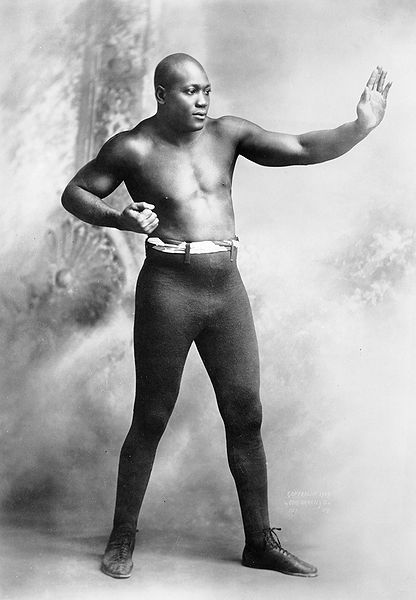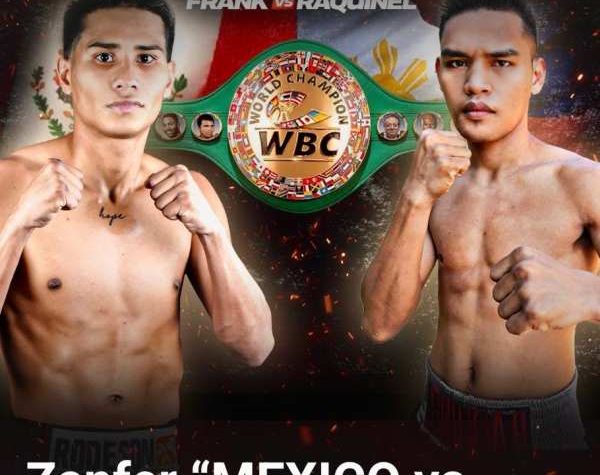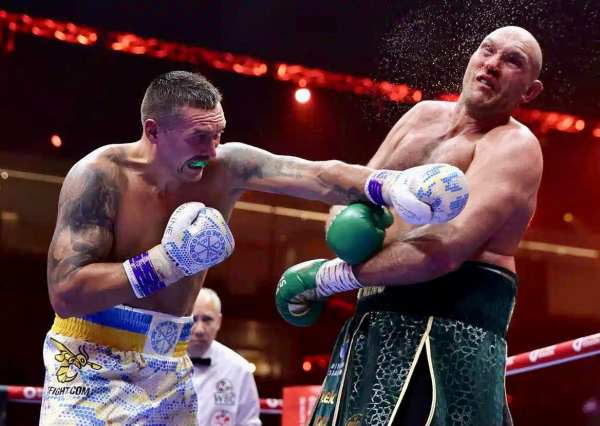
boxinginsider.com
By: Sean Crose
Jack Johnson was not only the first African American heavyweight champion of the world, he was also quite the character. A freewheeling womanizer, Johnson committed the – at the time – unforgiveable social sin of sleeping with white women. If that wasn’t bad enough for some Americans of the era, Johnson also liked to flaunt his wealth and fame. Stories still abound. My favorite? The time Johnson got pulled over for speeding. He offered to pay more for his violation than was required. The officer pointed this out to Johnson, but the champion replied that all was well – he’d be speeding again on the way home.

Needless to say, Johnson rankled some notable people, most especially the author Jack London. While London wrote some great stuff, he was not at all happy with Johnson being champion. Sure enough, London called for Jim Jeffries, the former heavyweight champ, to come out of retirement in order to beat the current champion. The thing about Jeffries is that he didn’t seem too eager to fight Johnson. Undefeated as a pro, the man simply appeared to be content in retirement. Still, there was no doubt a lot of pressure for him to face the current champ. There was undoubtedly a lot of money to be made facing Johnson, as well.
And so, Jeffries agreed to the bout. It’s understandable why it may have looked like an exciting match on paper for reasons that weren’t race related. For one thing, Jeffries had been some kind of fighter in his day. A former sparring partner of James J Corbett, Jeffries had gone on to best Gentleman Jim in the ring twice. He had also bested Corbett’s former conqueror, Bob Fitzimmons, twice as well. Word is that when he heard Fitzimmons might wear loaded gloves into one of their matches, Jeffries said that was fine with him – he was going to beat the tar out of Fitzimmons anyway. And indeed, he won the fight.
That was Jeffries….a man who was essentially fearless. Like John L Sullivan before him, however, Jeffries wouldn’t fight an African American for the heavyweight title. Oh, he’d fight black opponents – just not for the biggest prize in sports. One can’t help but get the impression that perhaps Jeffries was bulldozed by the opinion setters of his time. He’d fight African Americans, but not for the championship. He’d long been retired, but then came out and battled Johnson. Whether intentionally or not, the man looks like he may have had a tendency to head in the direction of the wind.
If that were in fact the case, the wind led him in the wrong direction when he signed on to face Johnson on the fourth of July, 1910. The bout was to be held in Reno, Nevada and it was to be an enormous deal. Papers from New York to San Francisco wrote about the affair, detailing the fighters in training and speculating on how the fight itself might go. The promoter, Tex Rickard, the eventual force behind Madison Square Garden, was a force to be reckoned with himself. Not that the bout would need more momentum than it already had.
Jeffries, to be sure, had his work cut out for him. The man hadn’t had a fight in around half a decade. What’s more, he reportedly had ballooned in weight. A good sized heavyweight in his time, Jeffries had apparently tipped the scales at or above the three hundred pound mark since retiring. It was a grueling training camp, no doubt, but Jeffries was able to shed significant weight. What of those missing years, though? Would ring rust be the story of the day?
Perhaps ring rust could, in fact, be blamed for what happened in the Johnson-Jeffries fight, but there’s just as strong an argument that the end result would have been the same. For Johnson dominated Jeffries. Dominated him. The man seems to have never stood a chance, much like Tommy Burns, the former champion who lost his crown to Johnson, never stood a chance. Jim Corbett, Jeffries old mentor and nemesis, was in Jeffries corner for the fight. It was arguable Corbett’s verbal battle with Johnson throughout the bout was more engaging than the bout itself.
For the once indomitable Jeffries couldn’t even land clean on his man. Once again, Jack Johnson made it look easy in a highly publicized battle. Things finally came to an end in the fifteenth round, when Jeffries crumbled on several occasions at the gloves of his clear better and the bout was stopped. People have referred to Jeffries as a great white hope. If that’s indeed how he was seen that July day over a hundred years ago, that hope was dashed in less than an hour’s worth of combat. Johnson was champ and there was to be no denying it.
An interesting take in all this is the behavior of Sullivan, the former champion, who witnessed the bout live and in person. Ironically enough for the man who had arguably created the color line, Sullivan was quick to let the world know that the day belonged to Johnson, that he was an excellent fighter and that he had won fair and square. This does not appear to have been an act of Sullivan hitching his wagon to a star. For there were clearly those who would have appreciated it if he had diminished Johnson’s performance.
Sullivan, though, simply called like he saw it, and was honorable enough to offer praise to where it was deserved. Not everyone would share Sullivan’s belated even handedness, however. London’s writing regarding the bout comes across as both disappointed and resigned – though he too made it clear Johnson was the better of the two fighters that day. Johnson may not have changed hearts by beating Jeffries (not that he had ever wanted to), but he seems to have changed some minds. The days of the Texan’s success being coughed up to a fluke were over. Jack Johnson was there to stay.





More News
Liu Gang, Brico Santig Join Forces
Highland’s Double Impact: August 18 at Lumpinee
Balajadia, Atencio in Action in Thailand